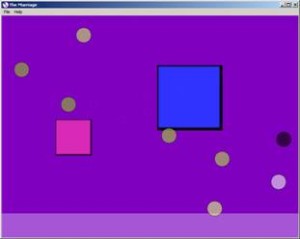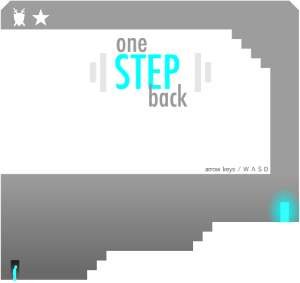 The Marriage was developed expressly to be Art. It isn’t fun, exactly, though like any work of art there’s some pleasure in experiencing it and discovering what it means to you, as well as guessing at the intention of the artist.
The Marriage was developed expressly to be Art. It isn’t fun, exactly, though like any work of art there’s some pleasure in experiencing it and discovering what it means to you, as well as guessing at the intention of the artist.
There’s a lot to say about it, but I’m not going to be able to say it any better than the developer does on the game’s web page. Read it and give it a try, it’s not a long game.
I will say something about the circumstances surrounding the game though: the idea of an “art game” might seem boring now, what with plenty of well publicized games having taken the concept and driven it into the dirt, but back when this was released in 2007 the idea that video games were an expressive medium had spent the last several years being challenged over and over again in court by a number of grandstanding individuals, and in particular by a lawyer from Florida named Jack Thompson. Many people who play and work with games saw this as a preposterous situation – how do you prove that water is wet?
Rod Humble, who developed The Marriage, took this in another direction though: what is it about games which makes them uniquely expressive? The Marriage takes the assumption that games are an art form and explores it by trying to express something using only that which is unique to games – interactivity. In other words, the rules of the game are themselves art.
Thompson was disbarred in 2008 and the public controversy surrounding games has died down a lot since then, and there have been a ton of artsy fartsy games released since that time (a few of which are pretty good) so this doesn’t seem like a big deal anymore. The Marriage had some modest significance when it was released though, and it continues to be interesting as an exploration of the medium. Most games still emphasize fancy graphics or moody audio when they’re trying to make a point, a reductivist game like this one shows us what it is that makes games special.
